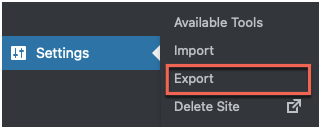Convert Blog from Wordpress Hugo and GitHub Pages
ftisiot
- 3 minutes read - 549 wordsI’ve had this small personal website for some time now, adding from time to time some stuff mainly related to Oracle Analytics, the Italian Oracle User Group and personal speaking experiences.
I was running it on Wordpress.com which was providing a nice completely managed experience: I didn’t have to care about hosting, versioning, SSL etc, all was managed by the platform. I just had to focus on content writing and on top of it I had, out of the box, nice dashboards showing visitors of the page and other blog stats.
As for everything in the cloud, however, also the above service comes with a cost. The more features I wanted, the more I had to be willing to pay:
- do you want premium Theme? pay extra!
- do you want more storage? extra!
- do you wanna custom plugins? extra!
The latter bit me recently, for some plugins I was looking at, Wordpress.com was asking to upgrade my site to “Business” plan. Paying 20£ per month wasn’t an option for my personal blog and the amount of content I produce in here, so I started analysing and evaluating my next step.
Managed platforms are awesome, but do I want to jump from one to another with the risk of hitting another paywall sooner or later? And if I want to run away from managed platforms, do I have the willingness and time to manage properly my own own infrastructure? Well, in my case is no… I don’t want to spend time on any updates, security problems, SSL certificate renewal. In this cloud era, I just want a service giving me a basic way of managing a reliable website where I can easy add content using my day to day tools of choice and… as cheaply as possible.
This is why, after reading my previous colleague Robin Moffat’s experience I started thinking about moving to Hugo and GitHub Pages. Hugo is perfect for static HTML websites which can be stored in GitHub pages doing the hosting. I leave you to Robin’s perfect explanation on how to set it up, since my incarnation is a customised copy of his.
I wanted to add my 2 cents on the story, so I thought that clarifying a couple of steps I had to do from my side.
Converting Wordpress to Hugo
My starting point was Wordpress, you can easily download all your content and images via the Wordpress.com GUI

Doing that, you’ll download a zip file named <username>.wordpress.com-YYYY-MM-DD-HH_mm_ss.zip containing a single <username>.wordpress.com-YYYY-MM-DD-HH_mm_ss.xml file.
Hugo’s website migration page offers a variety of solutions to migrate to Hugo from various sources, including Wordpress. My tool of choice has been exitwp-for-hugo, a simple python script.
Using it is pretty simple, first of all clone the repo
git clone https://github.com/wooni005/exitwp-for-hugo.git
then install the required libraries
sudo pip install --upgrade -r pip_requirements.txt
Place the <username>.wordpress.com-YYYY-MM-DD-HH_mm_ss.xml file under the exitwp-for-hugo/wordpress-xml folder and finally execute from the exitwp-for-hugo directory
./exitwp.py
The output is stored under the exitwp-for-hugo/build/hugo folder.
The rest of the exercise is basically to move the content from exitwp-for-hugo/build/hugo subfolders into the proper Hugo’s location (e.g. for posts from the _posts subforder to Hugo’s /content/posts)
Optionally you may want to change the generated filename for posts, since the tool stores them as YYYY-MM-DD-<blog_name>.markdown and I renamed them to <blog_name>.md